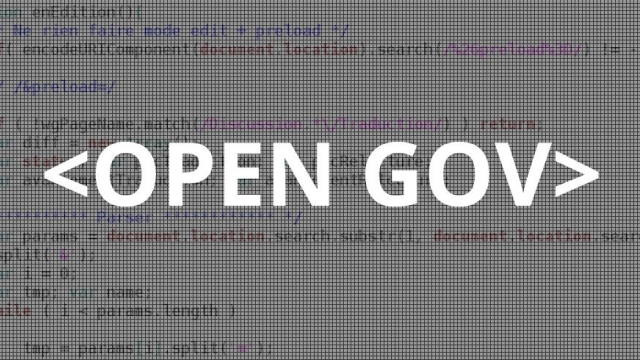
New report aims to demystify open government
Originally posted on The Horizons Tracker.
As the 4th Industrial Revolution has played out, the breadth of new technologies has given birth to a raft of buzzwords and jargon that can render it incredibly difficult to separate hype from reality. One of the more esoteric of these buzzwords is open government.
A new guide produced by the Open Government Partnership (OGP) attempts to demystify the term so that policy makers around the world have a better sense of what it is (and is not).
The OGP were created in 2011 by eight government and nine civil society leaders from the likes of the UK and US to promote open government, so are one of the foremost authorities on the topic in the world.
First things first, what exactly is an open government? The paper identifies a number of values that typify an open government:
- Access to information – open governments provide easy and public access to government-held information
- Civic participation – open governments promote formal public participation in civic activities
- Public accountability – open governments have rules, regulations and mechanisms that make government actors accountable to the public for their actions
- Technology and innovation for openness and accountability – open governments promote new technologies that offer opportunities for information sharing, public participation and collaboration
The impact of open government
The report then goes on to identify the impact of opening government in five clear areas: 1) public service delivery 2) business opportunities 3) government efficiency and cost saving 4) prevention of corruption and 5) trust in government.
The report suggests that open government has had a big impact on public service quality as engagement with the public has made services more accessible, cost-effective and efficient.
“Research shows that policies which include citizens in some stage of their inception are likely to be implemented more efficiently and swiftly. A better, more legitimate public policy is generally the outcome,” the authors say.
The report finds that open government has had less success in reducing corruption, with even 100% transparency only reducing corruption by 2.2%.
Open procurement and open business
The report highlights that procurement typically represents up to 50% of government expenditure in low and middle income countries, with the potential for 20% of this to be wasted. By opening up, the authors believe many of the waste, inefficiencies and corruption can be eradicated. They reveal that around 30 governments and cities around the world now operate open procurement programs, with the number growing each year.
The report goes on to talk about the value of open government data from a commercial perspective, not only in levelling the playing field from a procurement perspective but in driving new services.
“Openly accessible government-held data (open data) drives many commercial information services—generating economic value, creating jobs, and spurring innovation,” the authors say.
Boosting trust in government
Arguably the most important concern however surrounds trust in government, which in many places around the world is at historic lows. This lack of trust makes it even harder for governments to do a good job.
The report suggests that greater transparency can help rebuild some of that trust, but it is not always the case, especially if that transparency uncovers corruption and wrongdoings that might otherwise have remained unknown. Where things can be greatly improved however is in providing citizens with a means of giving feedback to policy makers.
“Studies show that when the public can give feedback to government agencies, are respectfully treated and are provided explanations to inform their understanding of policy processes and outcomes – trust in government and acceptance of the government’s legitimacy increases,” the authors say.
Ultimately, the OGP are an advocacy group for open government, and indeed the report provides a number of tips on how governments can become more open, and advice on how the OGP can support them, so it has to be taken with a degree of salt in that they very much have skin in this game.
Nonetheless, if you want to learn a bit more about open government, what it is, and how it can influence the way your government works, it’s a decent start.
Article source: New Report Aims To Demystify Open Government.
Header image source: Pixabay, Public Domain image.


